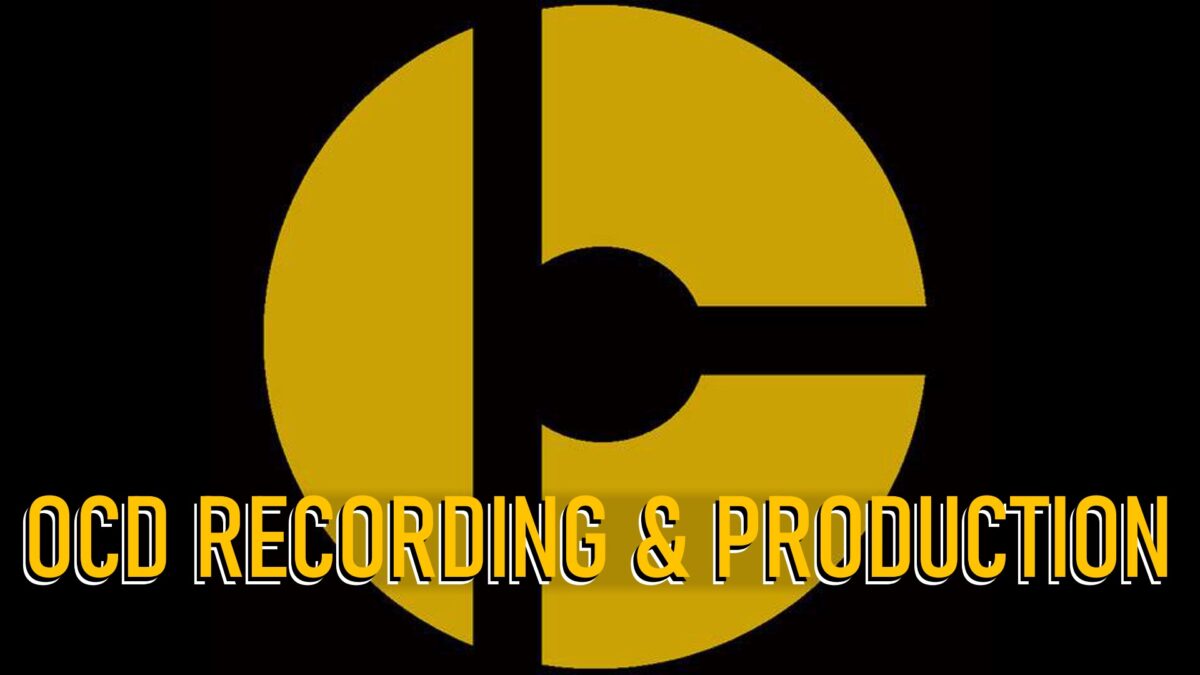If you know what you’re looking for, you’ll see the inside of his studio on album covers and inserts for many bands throughout the state. And that’s because for fourteen years, Duane Simoneaux has dedicated his life to producing some of the best music to come out of Louisiana. Before this interview, I hadn’t seen Duane in years. Sitting before him that day, my mind kept going back to middle school where we met. With hair descending languidly onto a stone-washed jean jacket that hung off his shoulders, he slid down hallways through a sea of kids. In a world where children our age were often pre-concerned with a quest to be different, Duane was only concerned with being himself. Back then, there was a comfort I took in being around someone where individuality was not contrived. And this day, I sat in a building that might as well have been a shrine to that sentiment. Guitars, customized hardware, OCD produced albums and self-built acoustic treatments ornamented the walls of a building that he basically resurrected from the dead.
Back in 2008, the location that now houses OCD Recording and Production was described in a word by Duane as a dump. He likened the place to a World-War II barracks, complete with ceilings and beams at full tilt. He saw potential in the place and began to design his vision. Next, he gutted the whole place; walls were moved, and ceilings and overhead beams were stripped of their ability to threaten human life. And eventually the place actually became something of use. With news of his intentions, bands were already anxious to rehearse there. So, he was able to enlist the help of several bands’ members to assist in the construction. In just three months’ time, OCD was up and running. Now, when you walk through those doors, the walls, ceilings, sound treatments, even the desk console in the control room was built by Duane.
At first, his business didn’t make any money. But over time he was able to build up a clientele. And slowly but surely, he began to see a profit. He also gave credit to Kirk Windstein for his initial success. Kirk took a chance on Duane and OCD years ago, before Duane had really been able to make a name for himself. And he’s stuck with Duane ever since; even in his solo efforts. Not only was Duane accredited with producing, engineering, mixing and mastering Kirk’s solo album, Dream In Motion. But he played keys and drums on it as well. (And another solo album is currently in the works) His meticulous nature can be contributed to, in-part, his obsessive compulsivity. As you’ve probably realized by now, the studio name wasn’t just pulled out of thin air. The OCD in him always wants to start a project and see it through to completion in one sitting. But because of the nature of the process, that never seems to happen. And he finds it especially challenging to stop mixing one track to start mixing on another. Differing schedules amongst the artists and himself tend to dictate Duane’s calendar. As he explained, a band member might come in to record drums one day. And then he has to put that away until the rest can be recorded. But summing up his overall work-flow, it seems as though he is able to adapt quite well. All things considered, one rule that we could both agree on was that you just can’t force creativity. It might be a two-day process to get into the mood and mix a track. And this is not out-of-scope for the jobs with which he is tasked. In speaking on what a “normal span of time” is for most projects, he’ll very quickly tell you there isn’t such a thing. Some projects progress quicker than others. Budget dictates as well as the purpose of the project. For instance, efforts toward a record label submission will usually take longer than a project going straight to press. And working with seasoned professionals doesn’t necessarily shorten the span of time needed to complete a project either. Duane explained, “I mean you’re working with artists. So, there’s moods, and whatever is going on that day (for them), or equipment failures. Or sometimes we’re writing the stuff in here. Like a Crowbar album… they’ll come in here and start recording. And nobody knows what the vocals are going to do while we’re recording it. And then, the day of, Kirk’s writing vocals and he comes in here. And we start banging it out. So, some of the creative process happens right here.” I couldn’t help but voice the idea that it must be inspiring to come into work and not know what great creative results you may find.
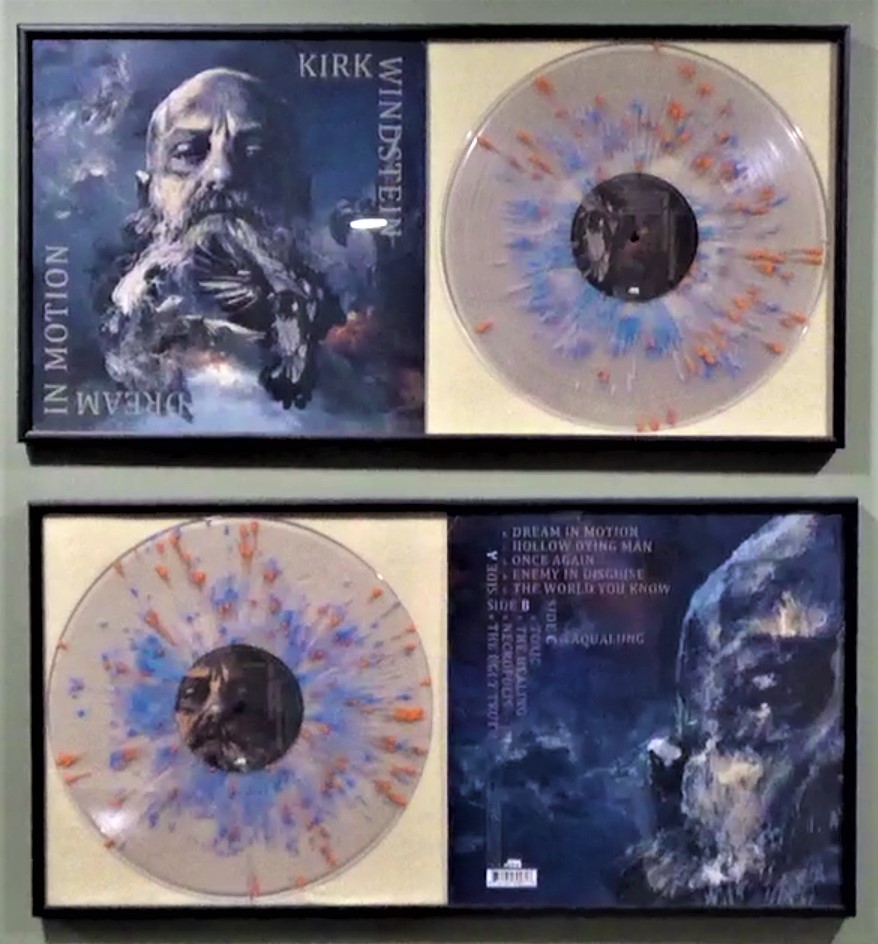
In speaking on spans of time for different projects, he brought up the last Exhorder album, Mourn the Southern Skies. This was their first album in over 30 years. So, there’s no question why it became a labor intensive, four-month process. A month of pre-production was followed by three months of recording and editing. And as this venture unfolded, there were regular check-ins from Exhorder’s label, Nuclear Blast. One thing absent from this process was such a thing as a day off. In the end, Duane was ecstatic with the results, as was the band. Exhorder’s bassist, Vinnie La Bella, even ended up working with Duane to co-produce his next project, Blackwater Canal. This would be Vinnie’s first time wearing the producer’s hat, and a stark contrast to the time involved with his own project. This was to be a five-song EP debut by four guys from Louisiana with countless years of experience under their belt. And the whole project, from start to finish, was completed in three days. And honestly, after reviewing Exhorder’s album and Blackwater Canal’s EP myself, both are masterpieces in their own right. In form and in fashion, and as he illustrated, you really never could tell how long a project was going to take or what might be involved in its creation.
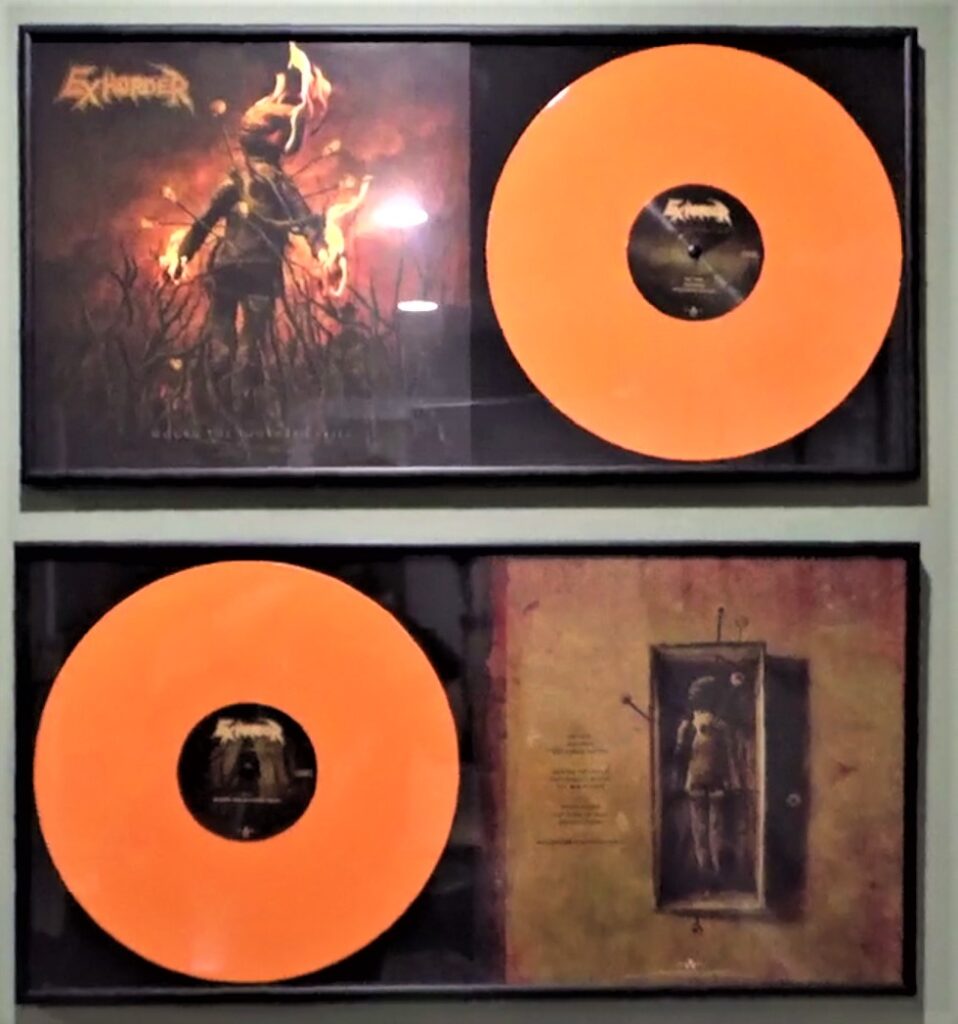
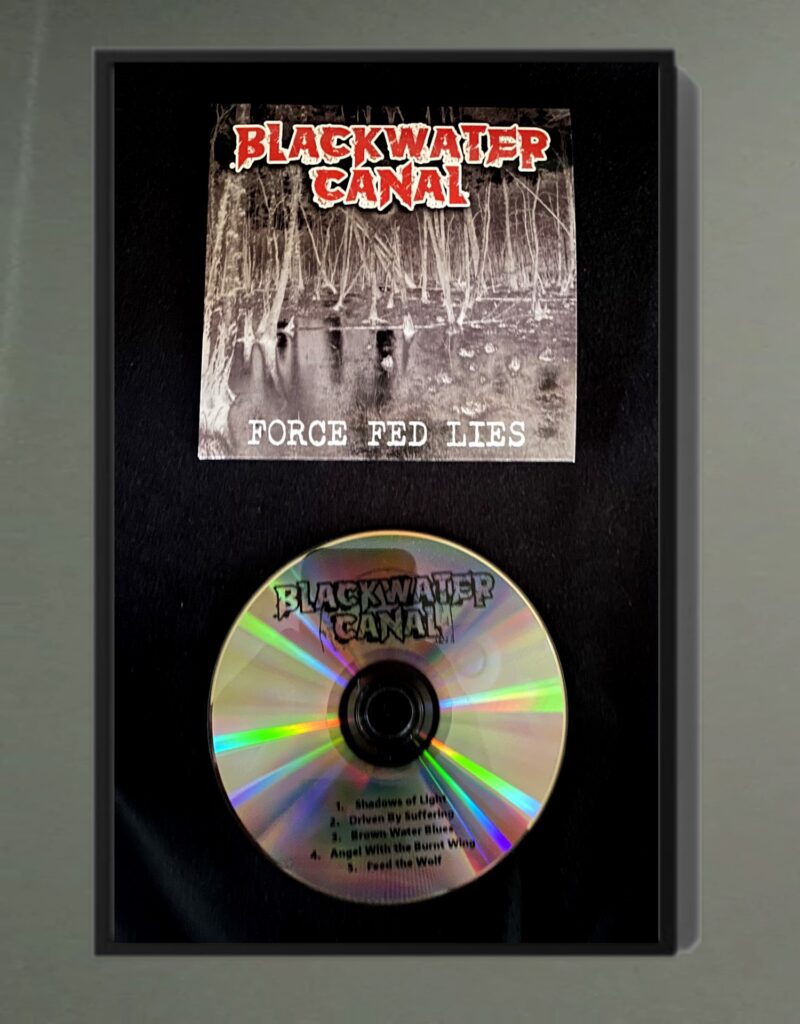
Something that remained the same throughout the years was that he never did advertise. Which I find surprising in today’s atmosphere. His jobs have always come by word of mouth. He does admit that there are nervous times when the current project he is working on is coming to a close and there’s nothing booked. With a smile and a shrug, he’ll tell you at random the phone will ring and then he’s booked solid. But don’t let him fool you. His work ethic and the results he delivers are what has made him the constant success he is today. And now “OCD Recording & Production” can be found on the back of a lot of albums.
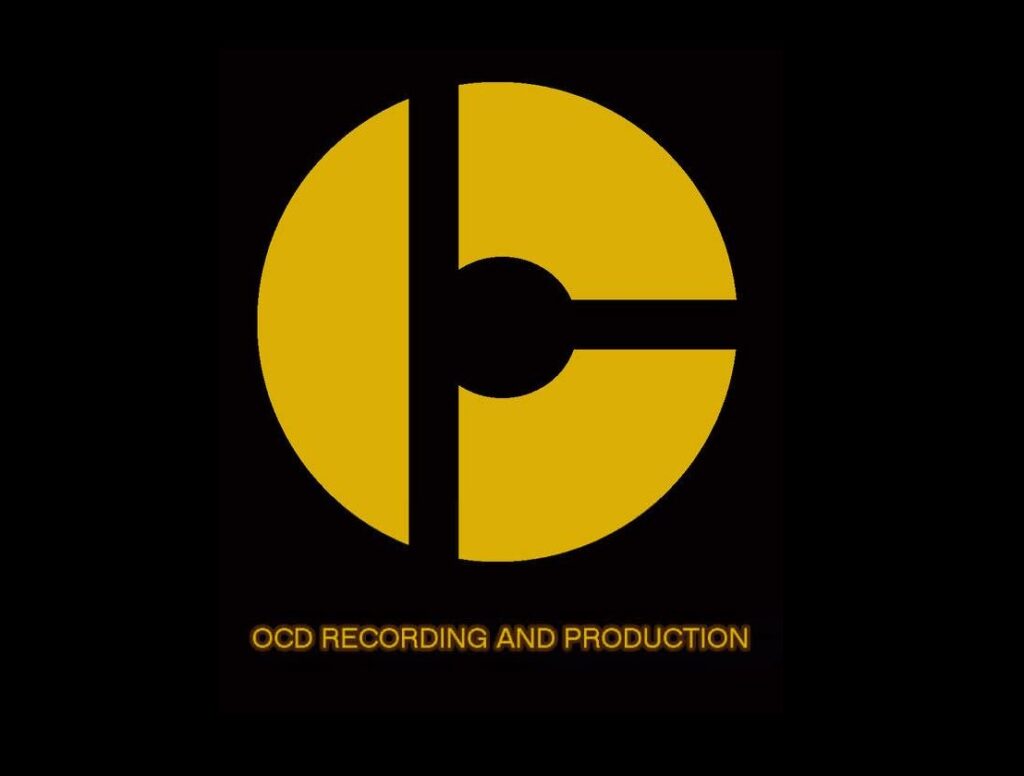
Many of those albums can be found on display at OCD. Walking in the front door, you find yourself in the waiting area. Two couches line two walls under framed CD’s and records that he has produced. There’s a bathroom and a kitchenette across the room. One doorway leads into the recording area, and the other to private rehearsal and storage spaces. And more rooms are accessible from there. The other doorway leads to where the magic happens. Upon entry, you immediately pass a vocal booth and the room opens up into a dynasty of sound. Guitars and acoustic treatments line the walls. Colored lights accent amps and speakers. A mic’d drum kit sits at center with speakers and other hardware filling the corners. The control room sits in the rear with a couch across from the main console, and a window looking out into the room and in through another window to the vocal booth. The room is so, so quiet. I can only imagine what a glorious feeling it must be to come and audibly light it ablaze with guitars and drums and thrashing screams!
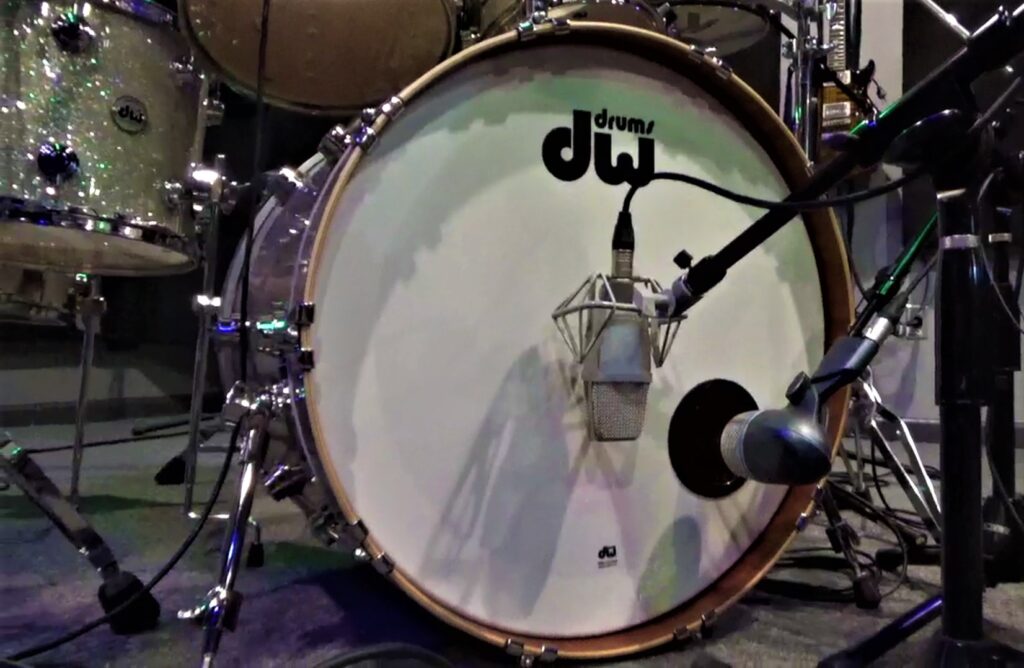
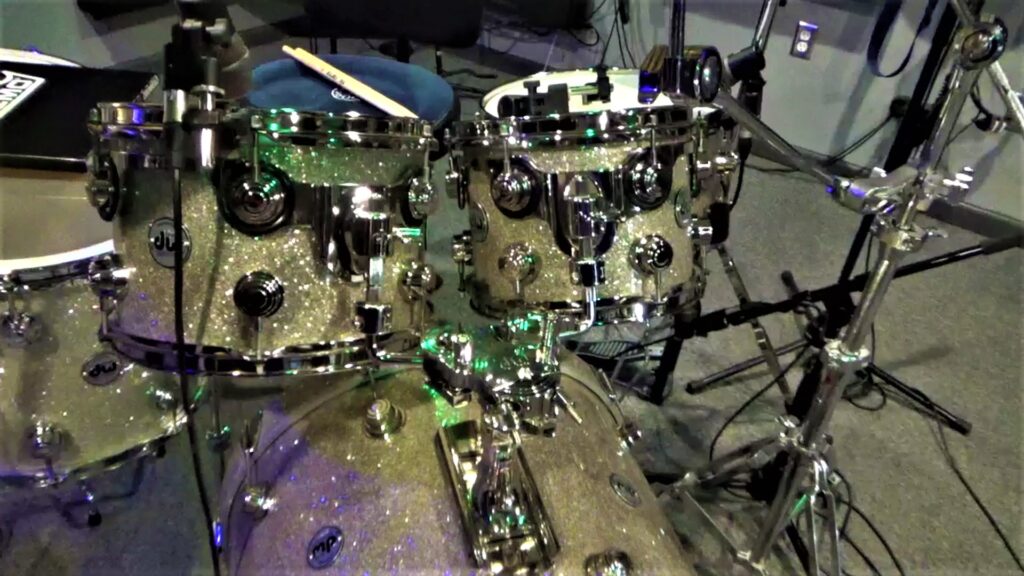
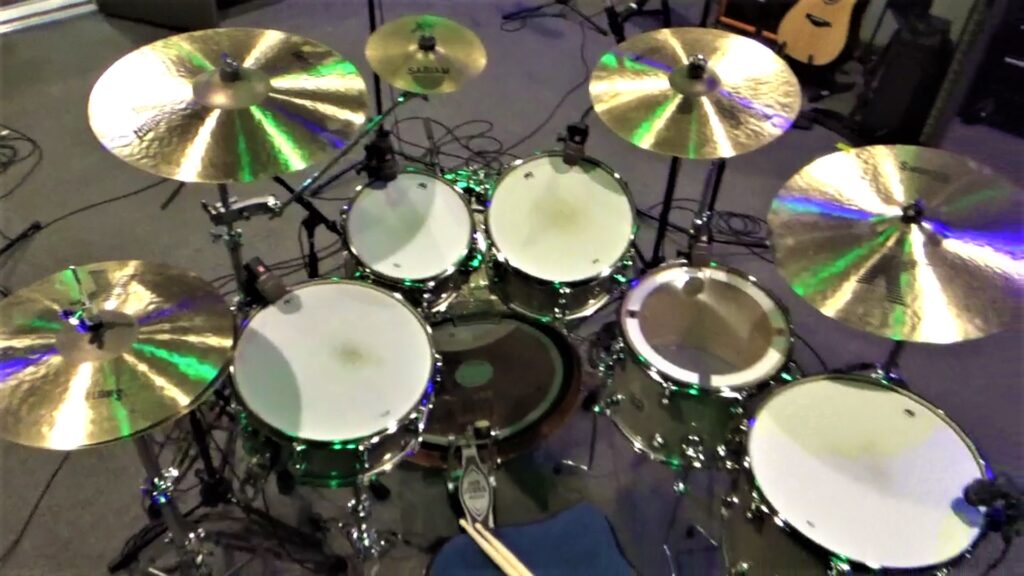
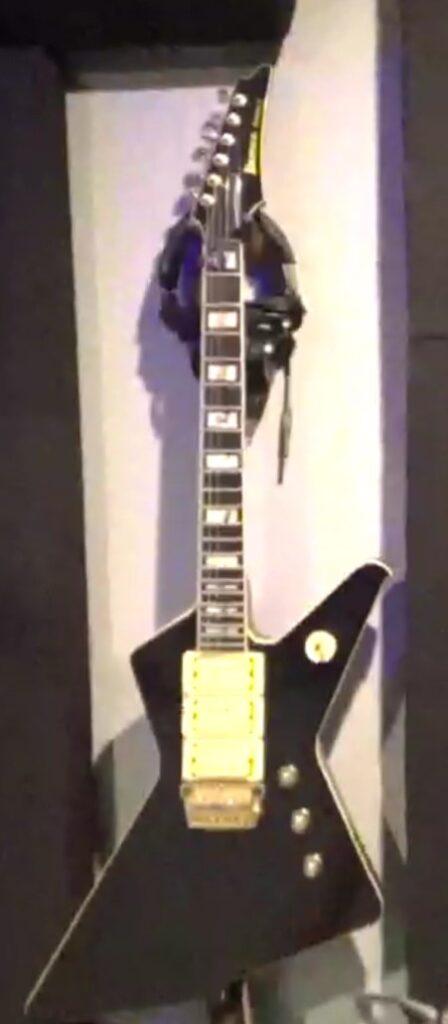
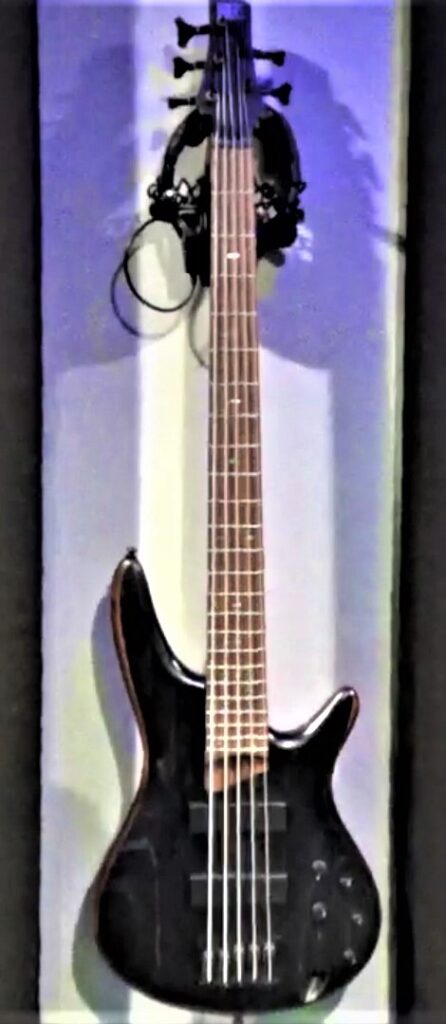
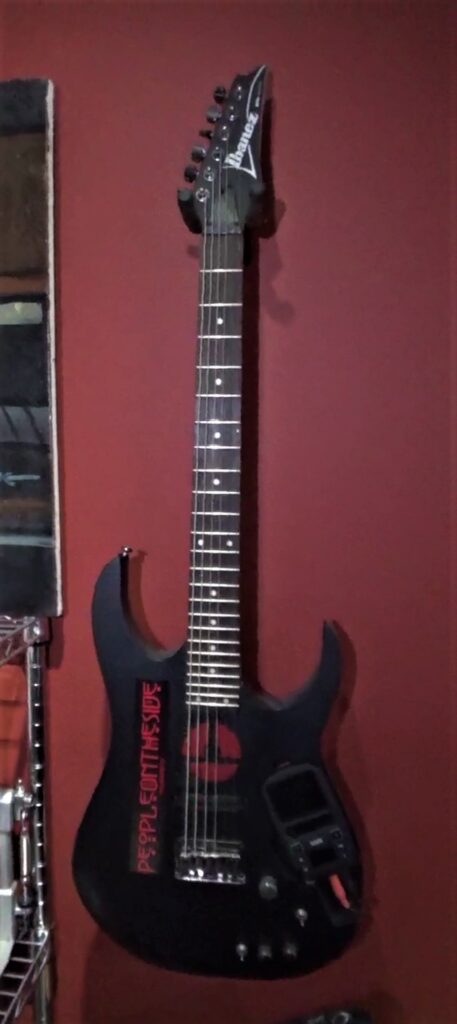


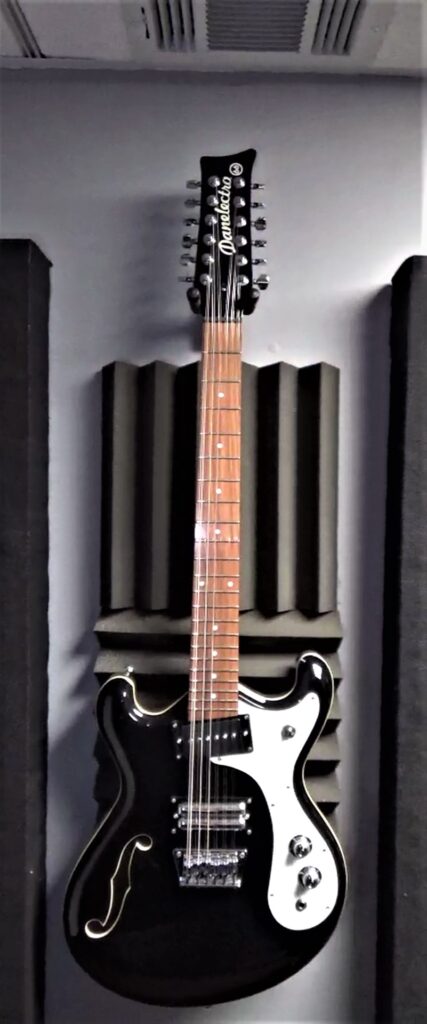
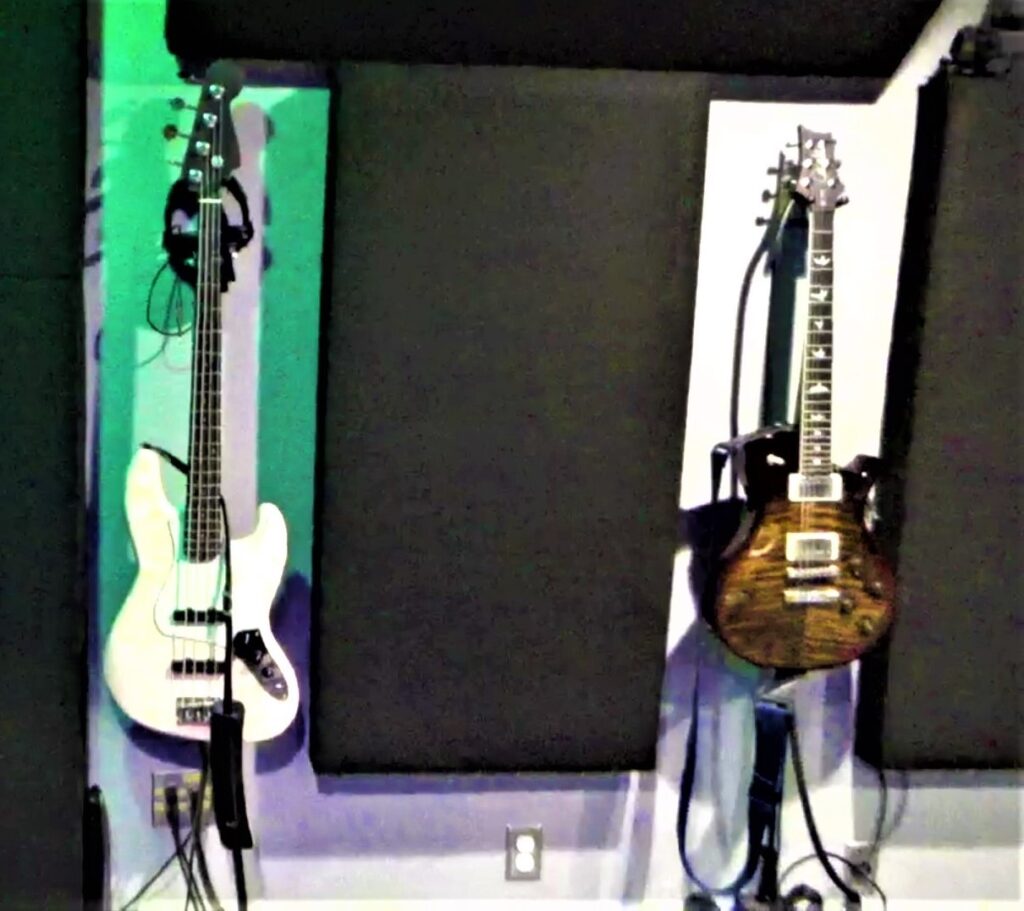
OCD has a sponsorship through SE Microphones. And many of these weighted, powerful gems can be found throughout his studio. But there are also several modified mics that he is proud to own. One in particular is the microphone in his vocal booth. It’s a piece built by Chris Prutcher of Barbaric Amplification out in California. Duane and Chris began speaking online about what it was exactly Duane was searching for. Chris offered to build him a microphone. And Duane began scouring the internet for parts. He happened across someone in forums that was known as THE tube guy with the handle “Bowie”. Bowie pitched Duane on a special tube he had for sale. While Duane dismissed the seemingly sensational claim, he purchased the tube and had it shipped to Chris out in California. The next thing he heard from Chris was, “DUDE! Where did you get this TUBE?!” So, Chris combined his circuit design with the tube from Bowie. And both Chris and Duane couldn’t have been more pleased with the result. Chris even named the mic after Duane’s studio. And so, the mic became known as the OCD-BA51. Duane has always gravitated toward the type of equipment that can’t be found on a shelf, so-to-speak. And rightfully so. It has given his studio a proprietary sound that cannot be duplicated elsewhere. He also has some microphones that were custom built by Michael Joly, of OktavaMod in Massachusetts. Though this guy serviced over 20,000 clients in a span of 13 years, OktavaMod closed its doors in 2018. I’d say, at that point, Duane’s equipment transitioned from unique to rare, furthering OCD’s place in signature sound.
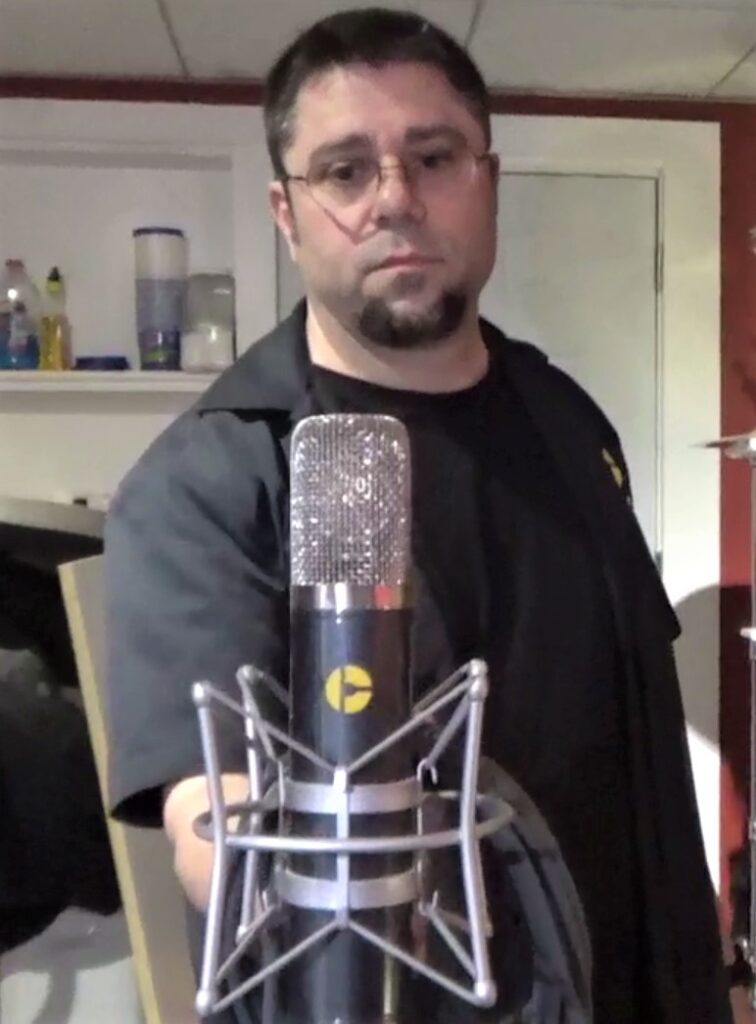
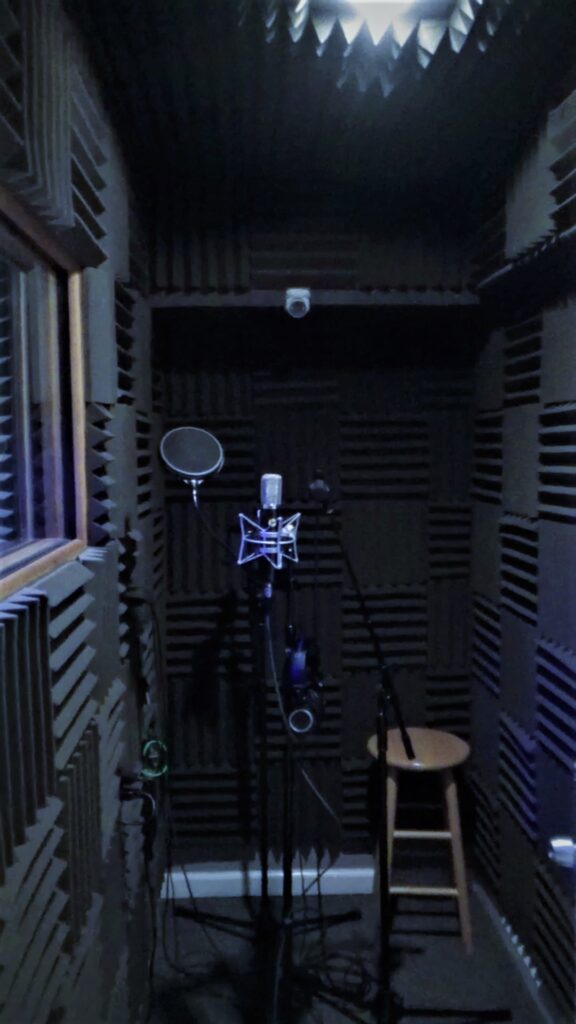
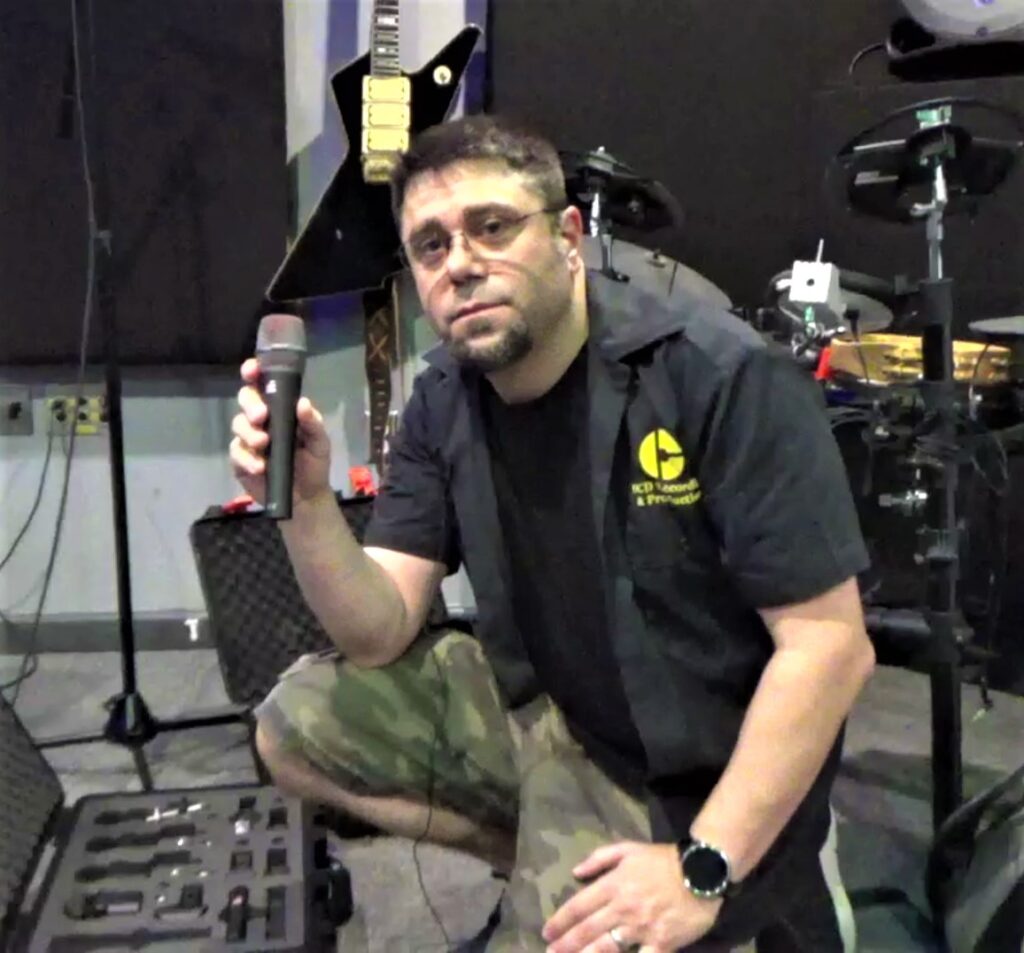
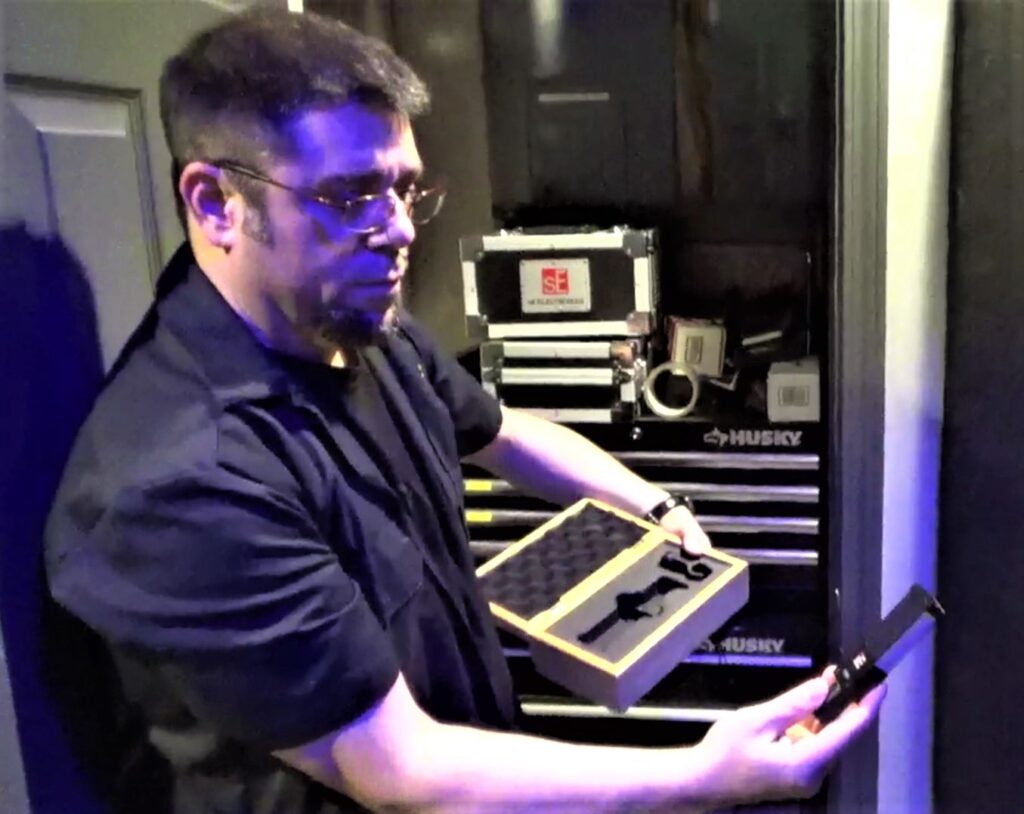
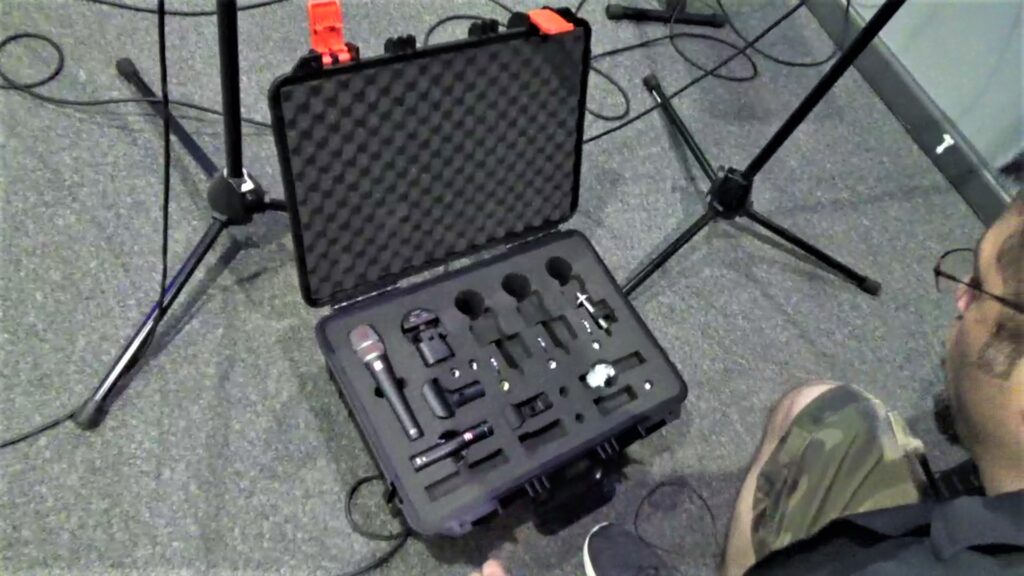
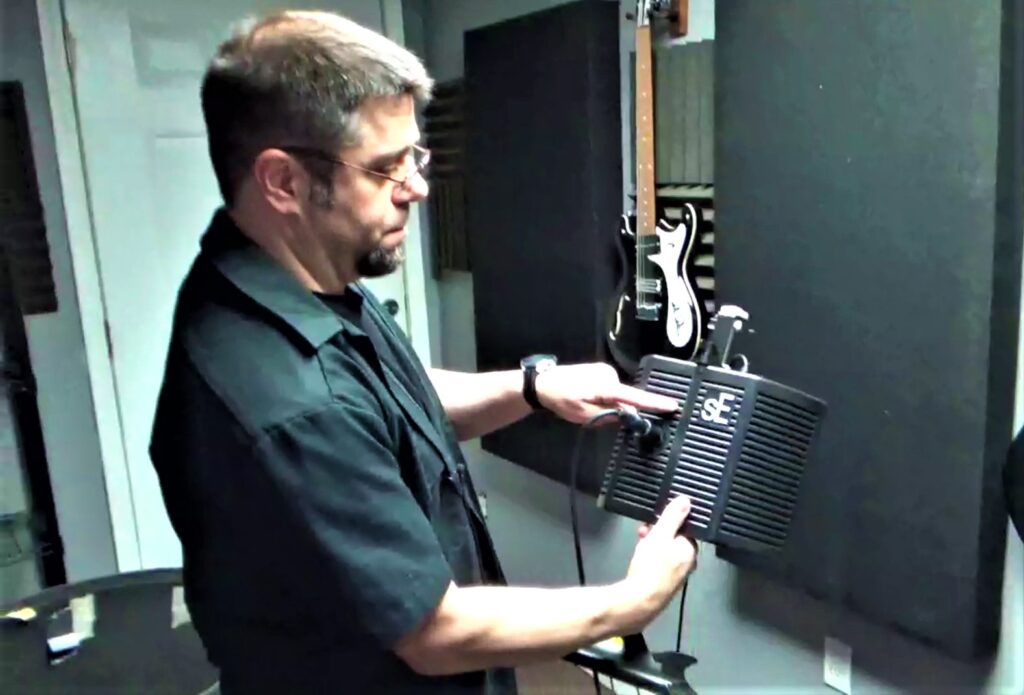
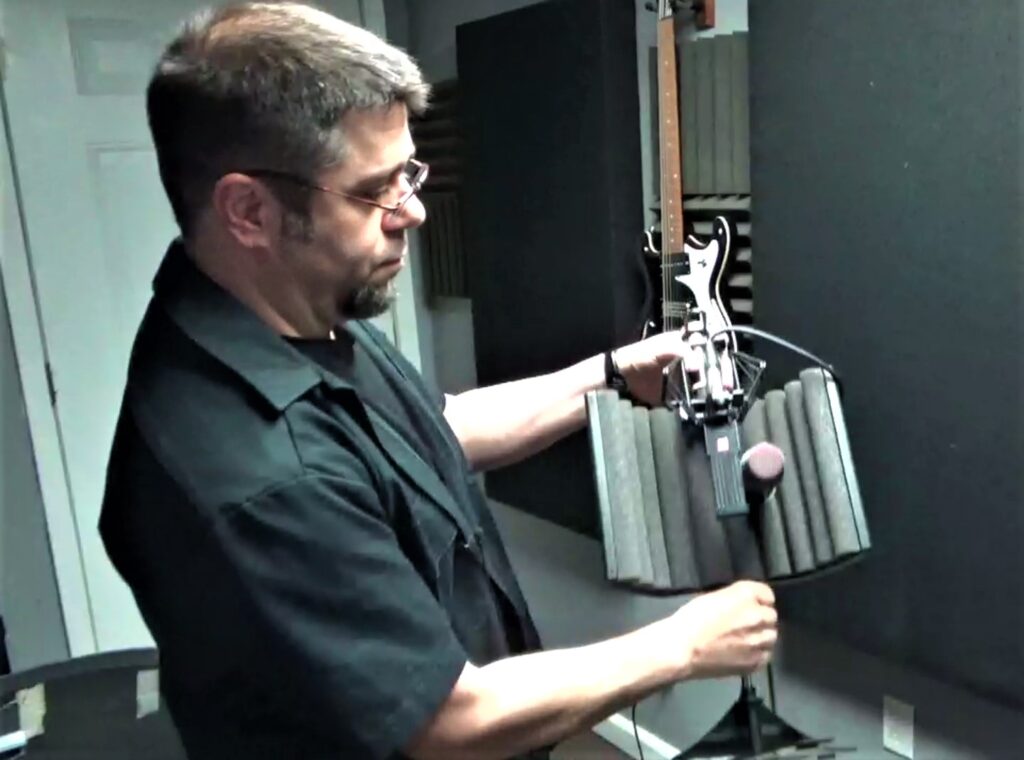
The sonic absolute does not stop there. The digital console shares space with some API pre-amps, a Neve clone, and several compressors modified by Jim Williams, who is well known for augmenting existing outboard equipment. Jim’s most notable clients were John Mclaughlin, Stevie Wonder, and Frank Zappa. And Jim was how Duane came to use the 90’s era Soundcraft Venue analog console that feeds his digital console. According to Jim, once modified, it’s as close as you can get to audio perfection. Duane had the console modified in Nashville, as per Jim’s specifications, and now he swears by it. I pointed out that there is a stage-full of gear out in the recording area and asked if the accumulation of all this was as a result of being in bands over the years. He nodded, saying yes, and paused. “Yeah, a lot of it. But then, anything really nice guitar-wise, a good friend of mine that I work with constantly; his name is Hugo Miranda. If you see a nice guitar, it’s Hugo’s.” Hugo Miranda is a producer, musician, and songwriter that played guitar and sang vocals for his band RetroElectro, and came to OCD over seven years ago to record an album. Since then, the two have worked on another project, Daphne Moon, as well as countless hours of his solo material. Hugo was actually a transplant from New York, and so valued Duane’s hospitality and willingness to not only work with him, but to introduce him to other musicians in the area and show him the production ropes so-to-speak. Upon completion of Duane’s home studio, the two plan to work together to keep both locations up and running. Above all else, Hugo exclaimed, “His Pro-Tools editing Kung-Fu is INCREDIBLE!”
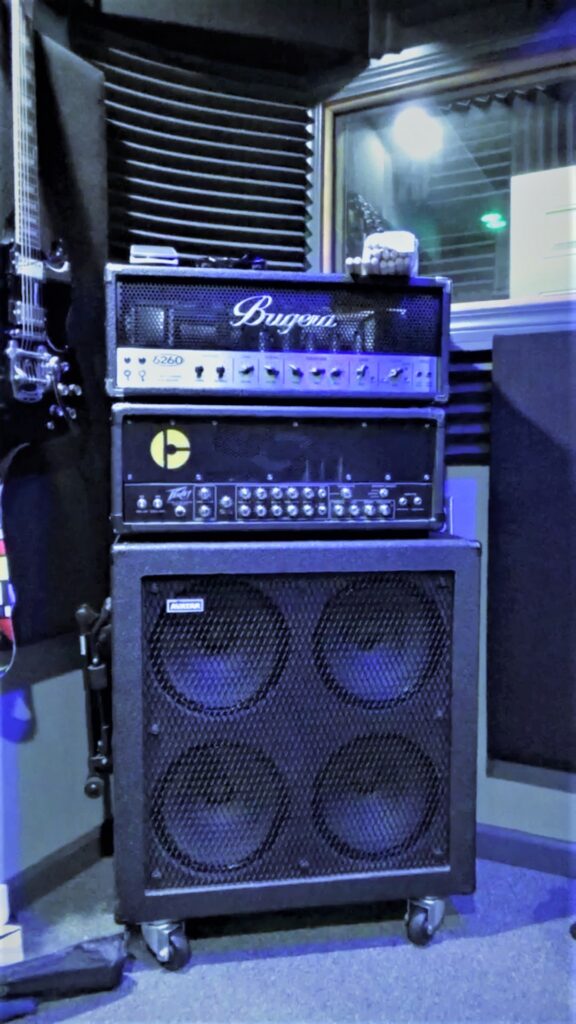
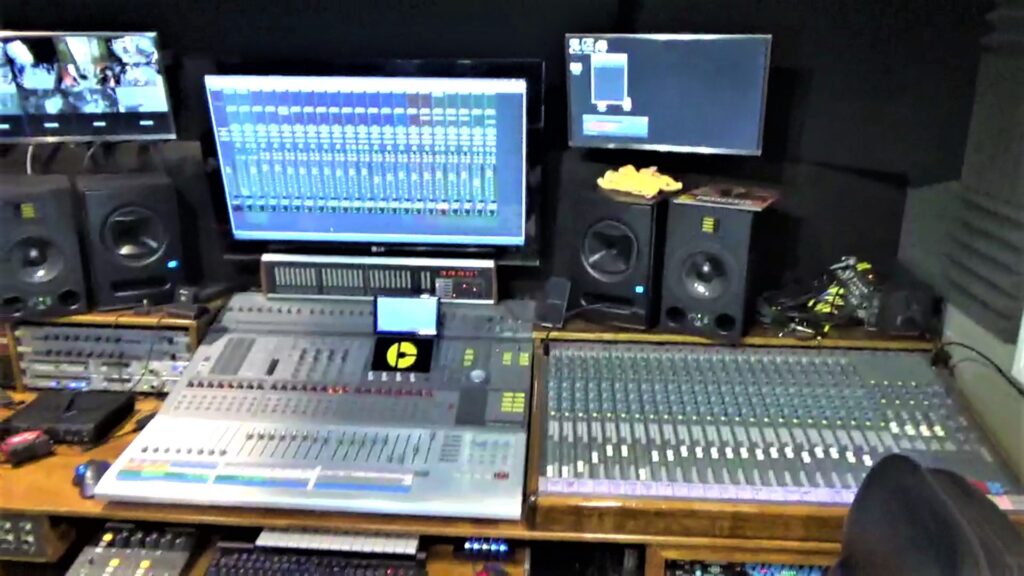
Duane cited more family time, less overhead, and the convenience of better choosing his own hours as motivation for building OCD’s second location at his home. And true to his obsessive compulsions, the second location is architecturally modelled exactly after the first one. I guess it’s like they say, “if it ain’t broke, don’t fix it!” His building design, his collection of unique equipment, his drive, and his business acumen have all worked well for him over the years. Some of the clients he’s enjoyed working with have been, Crowbar, Exhorder, Down, Blackwater Canal, Ashes to Dust, We Are Wires, Spacemetal, Stereo Fire Empire, Uprising, Bad Grass, Runoft, Misled, Motoriot, Sun God Seven, Wicked River Rising, and Them Guys. And those are just the ones framed in the waiting room. At the time of this interview, he was working on an album for a ska-reggae band by the name of Firebrain as well as Kirk Windstein’s second solo album. And starting the following week, he would be working on a project for Adam Pierce, winner of The Voice.

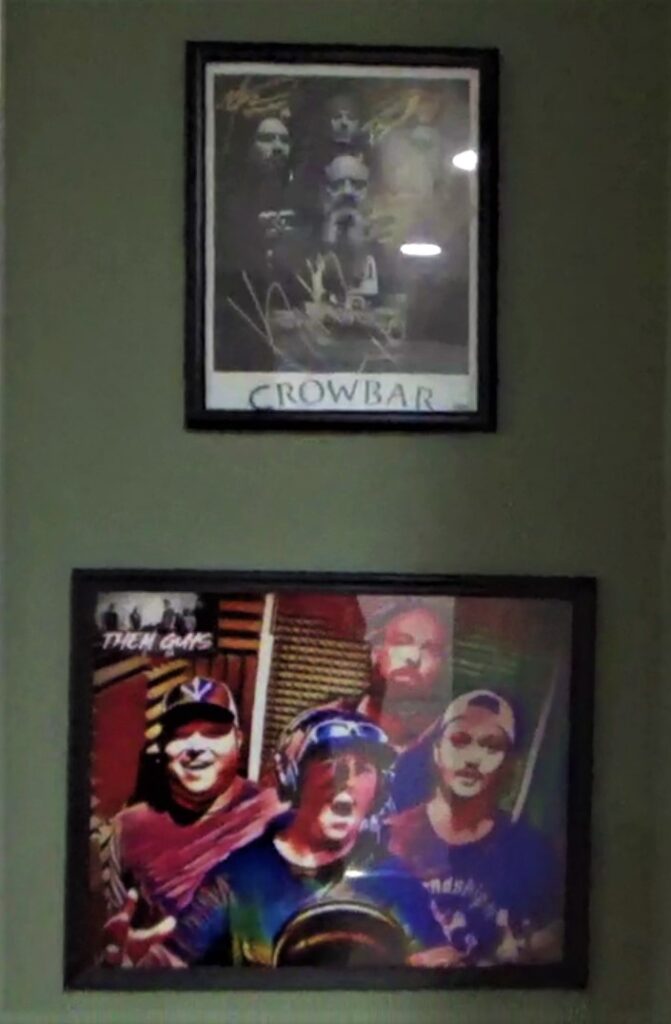
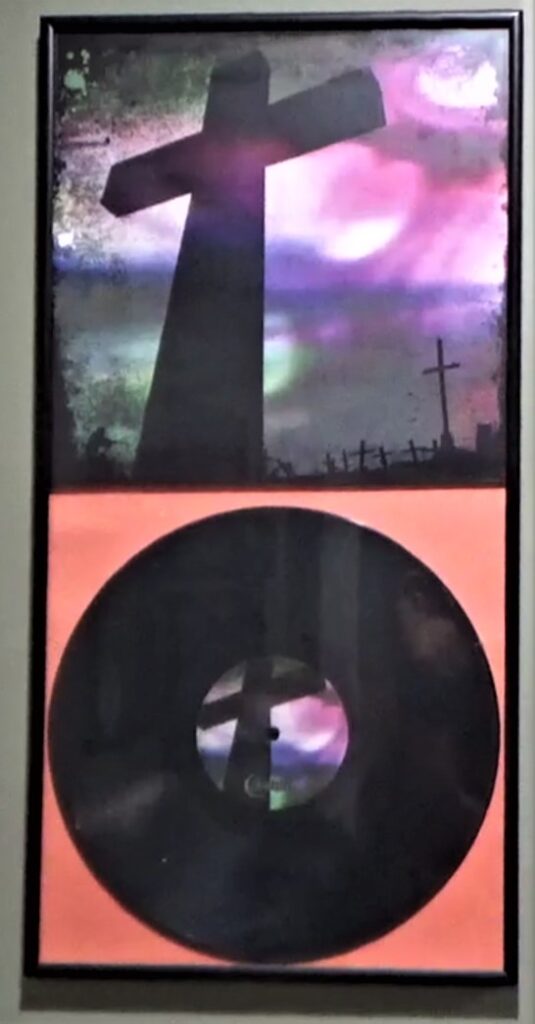
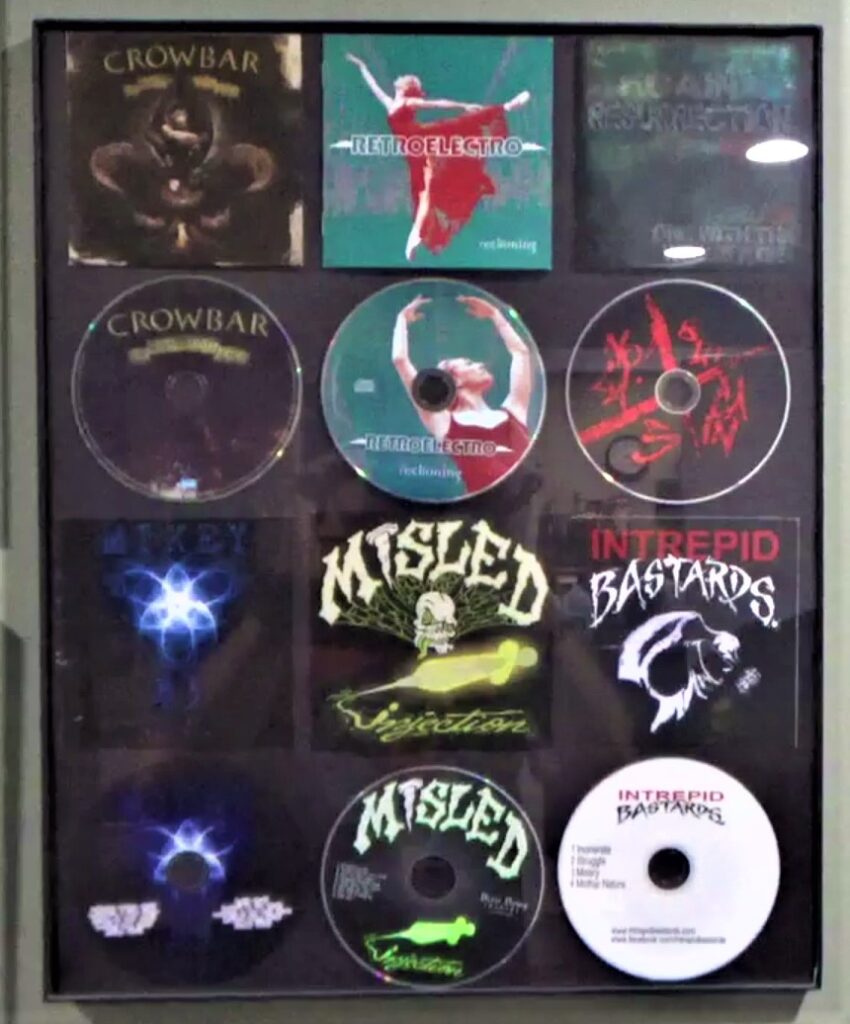
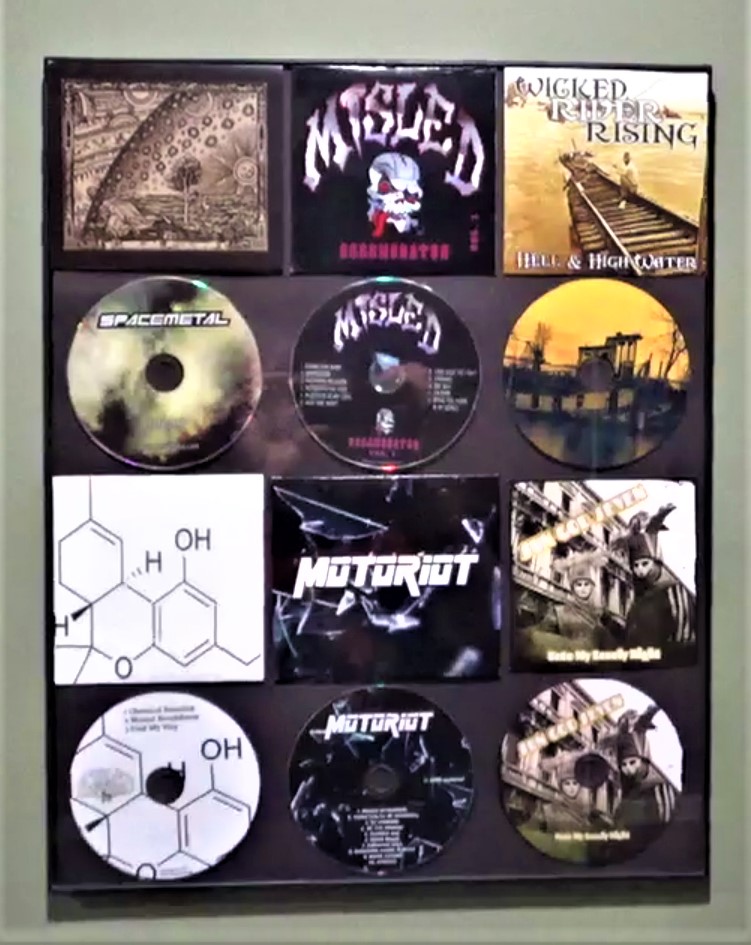
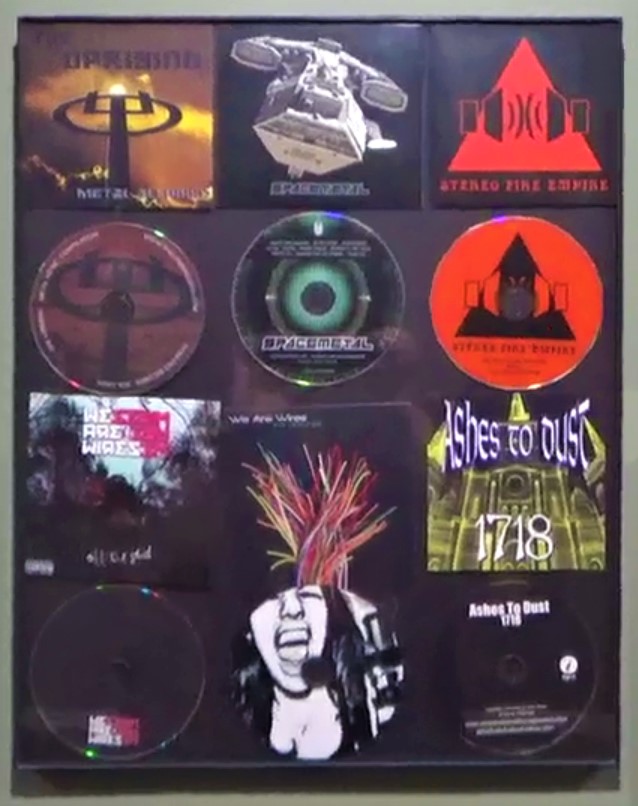
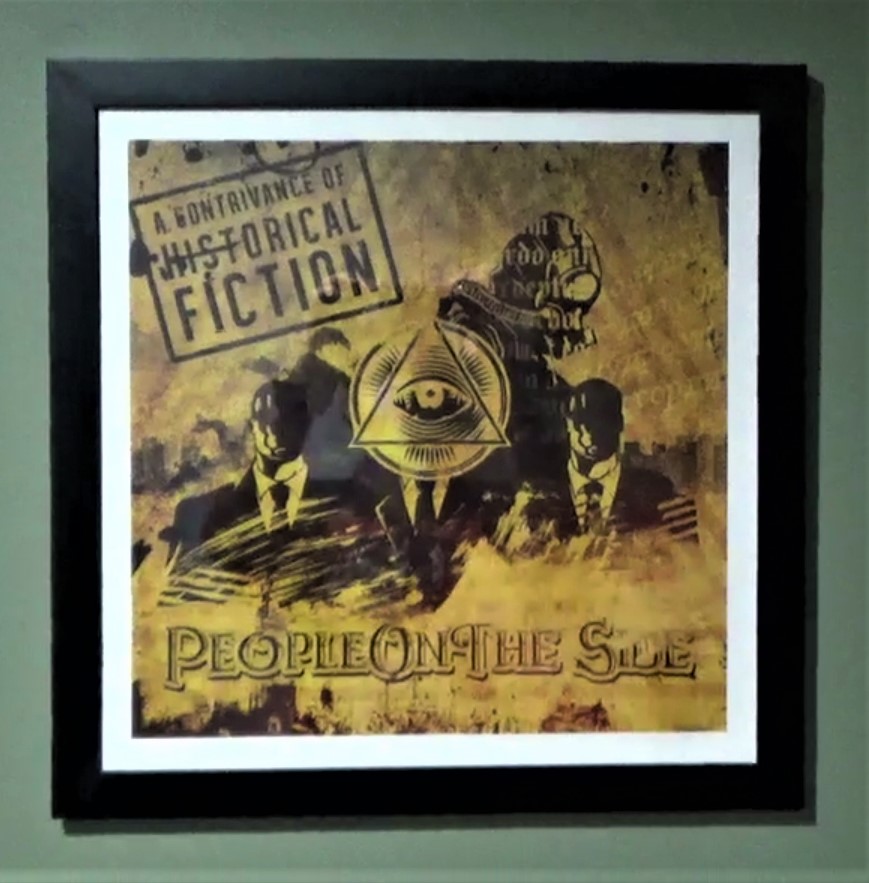
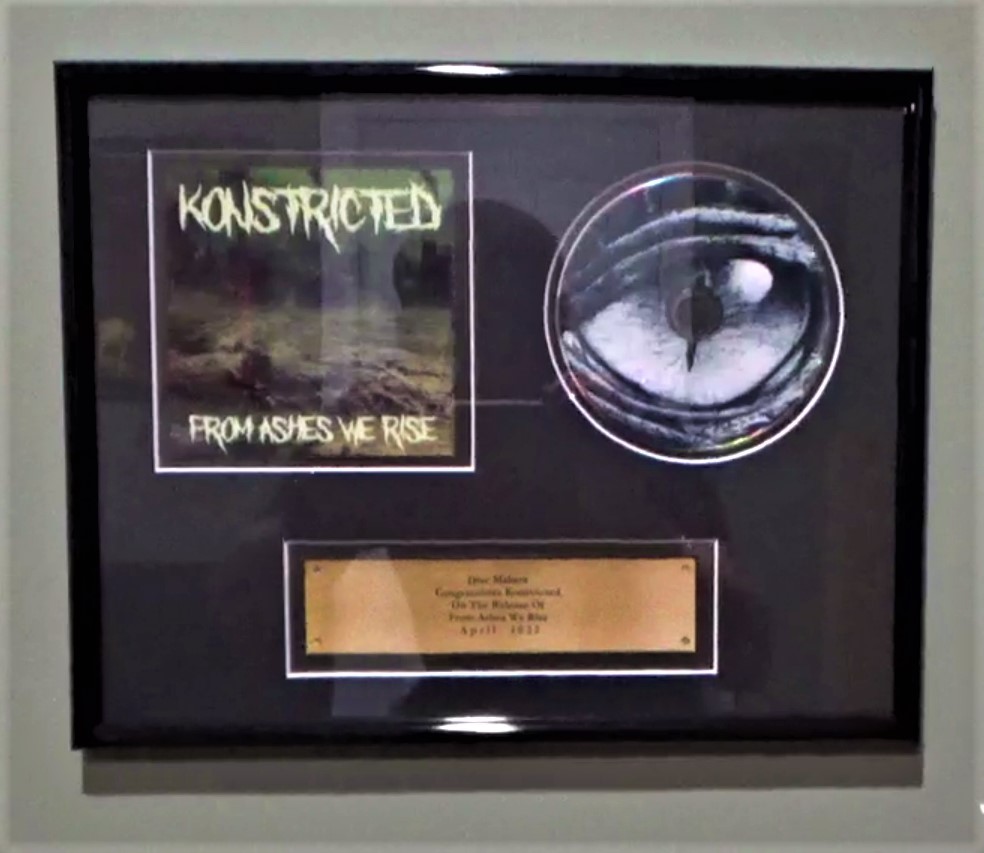
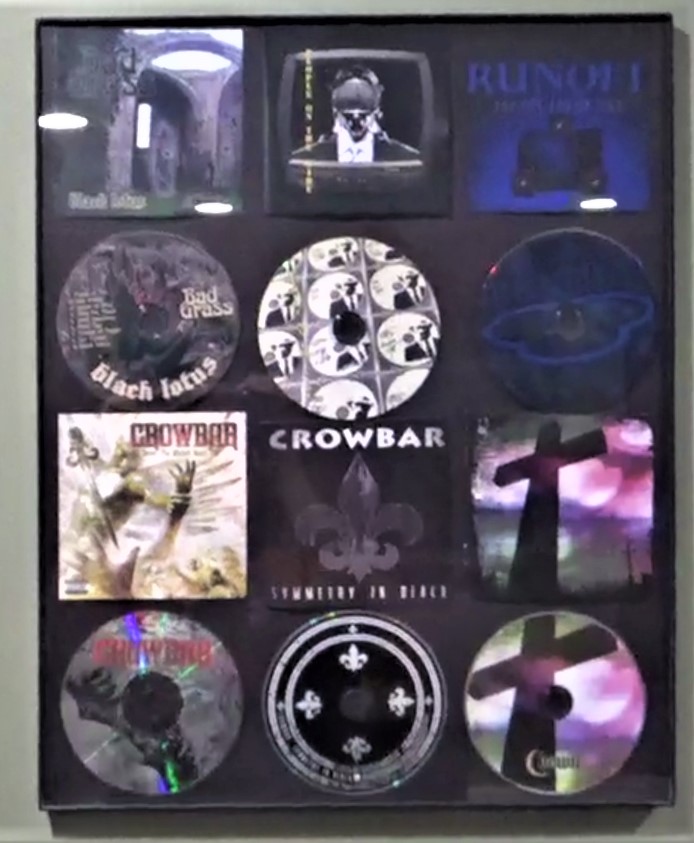

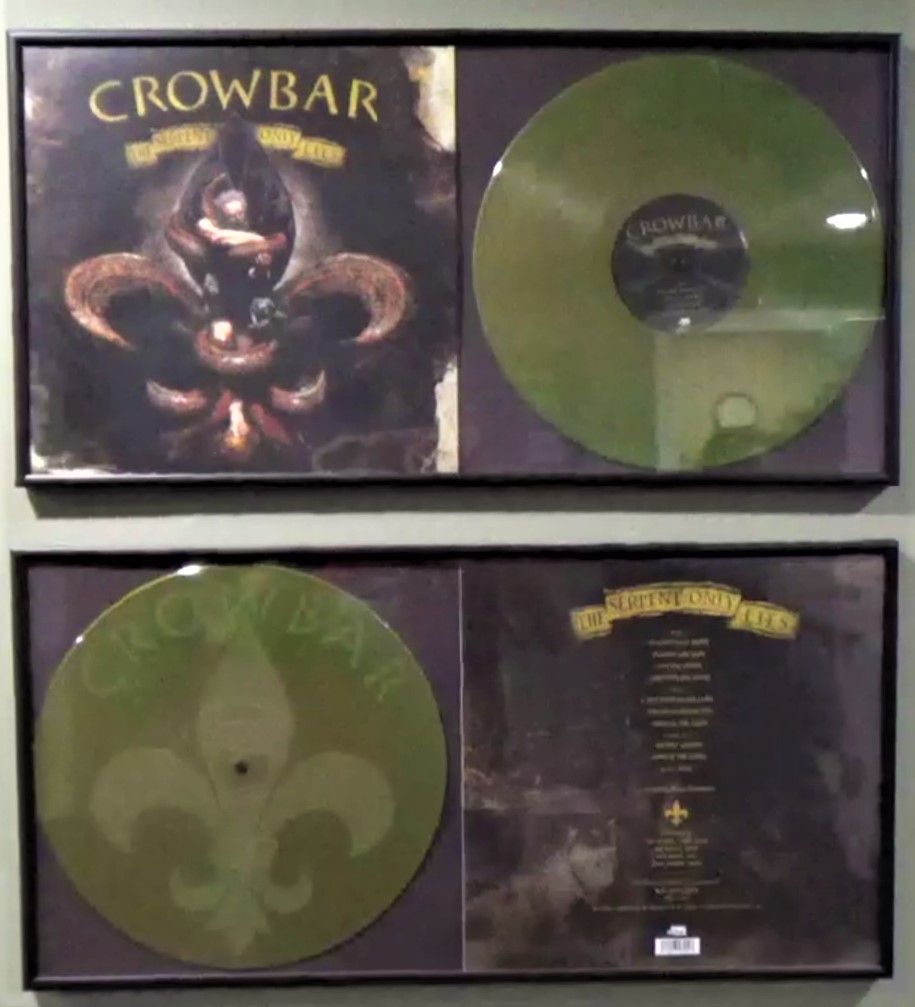
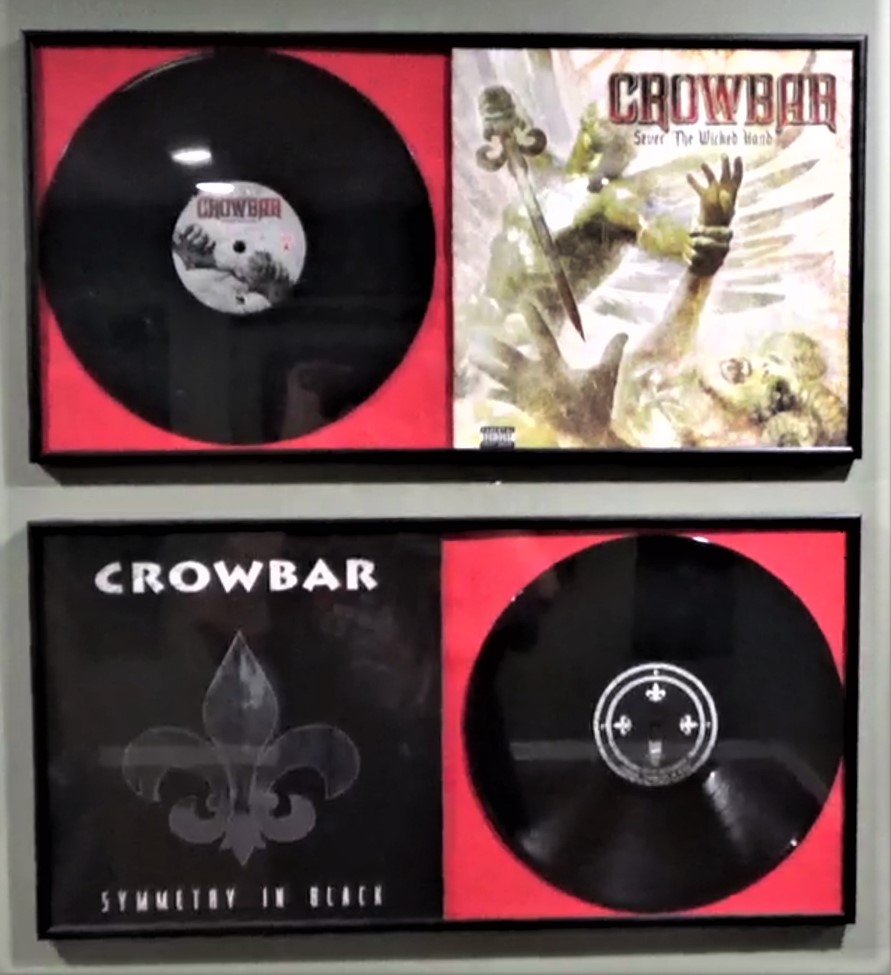
I spoke with a band that recently recorded at OCD to get a feel for their experience with Duane. They talked about how well he knew his gear and how personable he was. They also spoke about his level of focus. He adapts to the band in its entirety; not just the time frame and budget, but their moods, their personalities, the different schedules of each member, and the intended target for the finished product. Whether it be straight to pressing and releasing or to a record label, he addresses needs that possibly even the band doesn’t know they have. And to me this speaks to not only skill in his craft, but an intuitive nature for the process of creation. Combined with custom built gear proprietary to his studio and the sheer amount of gear available to customers, one could argue that the level of service bands receive at OCD has, and always will be, second to none.
Author: David Trahan
Neworleansmusicians.com Podcast can be found on these platforms.

